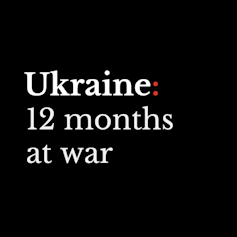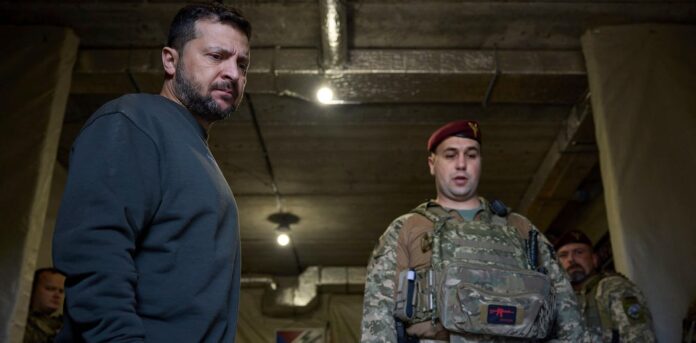Ukraine recap: what war in the Middle East means for Putin and Ukraine
By Rachael Jolley, The Conversation
For some people it was a week when they forgot that the Ukraine war was happening.
As news from the Middle East took up longer and longer slots on news programmes and websites, reports from Ukraine were pushed off the front pages, at least for now.
But as Robert Dover, professor of intelligence and national security at the University of Hull, explains, any reduction in the world’s attention on the Ukraine war could be an significant opportunity for President Vladimir Putin. It could easily distract the west and undermine its commitment to financial and military support for Ukraine, he argues.
This could open up time for Russia to regroup, slow the number of battlefield deaths and prolong the conflict. It could also divert military equipment to the Middle East. A longer war is generally seen as being in Russia’s favour as the commitment of allies is potentially worn away by national political opposition, and worries about cost, potentially.
Meanwhile, on the Baltic coast, a gas pipeline between Estonia and Finland has been hit by an explosion, and nobody is quite sure what or who is behind it. But since both countries are Nato members, and there’s a possibility that it could be an attack by Russia, the incident is coming under intense scrutiny.
Supplies of gas and energy, of course, have become a hugely political issue since the beginning of the war, when European countries realised their overdependence on Russia and suddenly had to make alternative arrangements at speed or risk no heating through the winter.
Thomas Froehlich, a research fellow at King’s College London, who studies the geopolitics of energy, talks us through the importance of a thorough investigation into the damaged pipeline and why Europe needs to diversify and protect its energy sources.
Away from the frontlines, Russians are queueing up to see the latest Hollywood blockbuster Barbie, despite the government suggesting the film does not uphold “Russian values”. No one knows exactly what punters’ motivation might be, a dash of escapism, a desire to see the latest global movie hit, or as a small act of defiance.
Marina Miron, a post-doctoral researcher at King’s College London, studies the power of information and how information is used during conflicts. She points out that the Kremlin likes to keep a tight grip on what is said and viewed. After all, this is a country where people are not currently allowed to call the “special military operation” in Ukraine a war and journalists can face up to 15 years in prison for publishing “false” information.
The overuse of the word “tragedy” is letting Russia off the hook, argues Mariana Budjeryn, a research associate, at the Harvard Kennedy School. The word “tragedy” is used far too often and it suggests that is something that is out of anyone’s control.
If you look at the roots of the word tragedy in its deeper original sense, it implies inadvertence and inevitability, she explains. And therefore masks the responsibility of perpetrators in causing injustices and human suffering through malicious intent and deliberate wrongdoing.
The word that should be used more often, she suggests, is crime. Russia is breaking international law, and therefore should be called to account, and calling what is happening in Ukraine a tragedy is not the way to do it.
When people flee from their homelands they often cling to the few possessions they are able to take with them. There are incredibly poignant images of Ukrainian families holding on to a teddy bear or a favourite book as they jostled for spaces on trains leaving the country as war broke out.
But Ukrainians living away from their homes in foreign lands are choosing another way to commemorate and remember their home, by getting tattoos of Ukrainian symbols or words inscribed on their bodies. Our French edition recently published an article looking at the Ukrainian diaspora in Portugal, and how tattoos are growing in popularity as a mark of resistance against Russian occupation, according to Amandine Desille, a post-doctoral researcher at the University of Lisbonne and an associate member at the University of Bordeaux.
And finally for an update on how The Conversation has been covering the Israel-Gaza conflict from all its bureaux around the world, here’s a round-up of coverage, compiled by global editor Stephen Khan.![]()
Rachael Jolley, International Affairs Editor, The Conversation
This article is republished from The Conversation under a Creative Commons license. Read the original article.

Since Vladimir Putin sent his war machine into Ukraine on February 24 2022, The Conversation has called upon some of the leading experts in international security, geopolitics and military tactics to help our readers understand the big issues. You can also subscribe to our fortnightly recap of expert analysis of the conflict in Ukraine.



